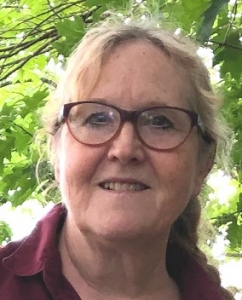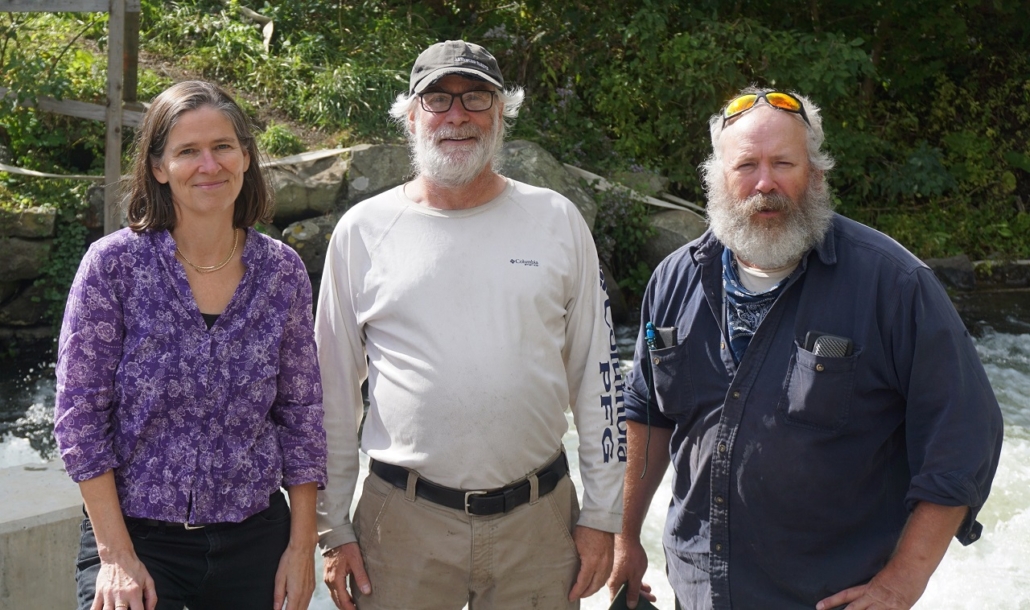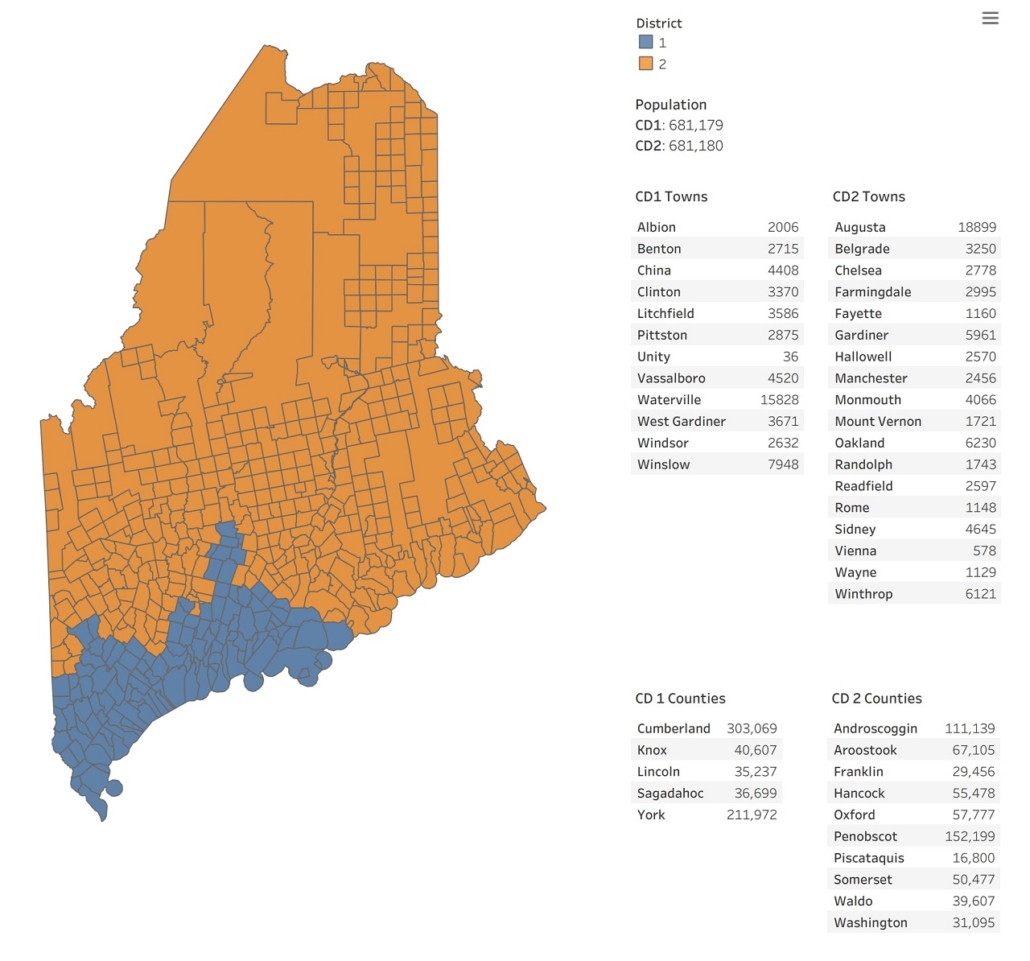 The four candidates vying for the two seats on the China select board were asked the following questions:
The four candidates vying for the two seats on the China select board were asked the following questions:
Do you believe that our lakes are an important resource for the Town of China? Why?
Or, if our lakes are not a primary important resource, then please explain your thinking.
Regardless of how you rank the value of our lakes to the future economy and welfare of China, what specific actions would you support or initiate to protect lake resources?
Do you support the broadband project?
Do you support the People’s Park initiative?
What do you see as the biggest challenges facing China over the next five years?
How would you attract new families to move to China? Do you think taxes in China are too low, too high or just right? Why?
What qualities would you bring to the China selectboard if you are elected?
In your opinion, what decisions has the China selectboard made recently that were wrongly decided? Correctly decided?
CLARIFICATION: A question posed above to China Select Board candidates in the October 28, 2021, issue of The Town Line, was not intended to be directed at the members of the People’s Park or their organization, but rather to see what the candidates’ position were regarding a park for the enjoyment of the public, or to sell it to a private developer. China voters decided in June to put the Lakeview Drive lots for sale to the highest bidder. Brent Chesley, of China, was the successful bidder for the land.
WAYNE CHADWICK
Age: 55
Education: Graduate of Erskine Academy.
Occupation: Self-employed excavation contractor.
Place of birth: Waterville
Past political experience: Served on the budget committee and is the one-term incumbent on the select board.
I think the lakes are important to the town, for recreation, tourism, and the homes and camps on them are a big part of our tax base. I think the projects that have been in place for the past few years are doing a good job of helping restore the lakes and reduce algae.
No, I do not support the broadband project. I think a town-owned system is a bad ide, with the speed that technology changes a 25-year bond of 5-plus million dollars has too much risk for the taxpayers. No, I do not support the people’s park, if this ever happens it will be tax exempt. I would much prefer to see a lake view home go on the property that would help contribute to the tax base. We already have Thurston Park and the school forest. I think our biggest challenge is to control town spending while still providing the services that our citizens require and have become accustomed to .
As far as attracting new families to move here I think we are already doing well. We have a good school system, are located conveniently near Augusta and Waterville and offer a nice rural country setting. As far as taxes go, I do think they are too high. We have had tax increases in the last two years, that puts more strain on the budgets of families, especially people on a fixed income.
Common sense, and trying to keep spending to a responsible level while still providing necessary services.
Wrong decisions in past years, First Park. So far we are in the red $460,000, plus or minus; Fiberight trash plant, we have around $200,000 tied up in a trash plant that sits idle because the operator went bankrupt, and buying an excavator and a trailer to haul it around, $170,000 when it was cheaper to subcontract the work that is done with it, that’s a few bad and expensive decisions. As for correct decisions I think continued work to help restore the lake quality is one, and I think listening to the will of the voters and selling the Lakeview Drive property for a reasonable price to put it back on the tax role.
BRENT CHESLEY

Brent Chesley
Age: 52
Education: Civil Engineering Technology, University of Maine.
Occupation: Half owner of Wyman & Simpson, Inc., of Richmond, heavy construction industry.
Place of birth: Millinocket. Moved to China 17 years ago.
Family: Married to Cathy; two stepchildren and four step-grandchildren.
Prior political experience: None.
I have attended every planning board meeting and select board meeting since that time. That attendance has gained me a knowledge of how town business is conducted and a perception of the issues that have arisen now and in the past. Always with respect, I have expressed my opinions and given advice through public comments and written letters to the Municipal Officers. I know that some of those have ruffled a few feathers, but I find it important to speak out and then let them use it as they will. A good selectman is one that can speak their mind and vote their conscience knowing that you can’t please everyone all the time. In order to volunteer and get involved, I made the requests and became an appointed member of both the Appeals Board and the Tax Increment Finance (TIF) Committee for the Town of China.
I believe that our lakes are an important resource and investing in those resources is a benefit to all China residents for the following reasons:
- The lakes give all of the local residents the opportunity to recreate with family and friends which adds to their quality of life.
- The lakes promote tourism for people in the surrounding area and from away to come spend time and money in China.
- The lakes bring in a number of seasonal lakefront property owners from nearby and far away
- Investment in the lakes increases the value of lakefront homes which protects the investments made by lakefront property owners
- Keeping the values of the lakefront properties high, lowers the property taxes on those properties that are not on the lakes
Through the TIF Committee, I have voted to recommend that the select board grant funding for the efforts of the China Lake Association (CLA) and the China Regions Lake Alliance (CRLA). I supported recommending TIF funding to Maine Rivers for the Alewife Restoration Initiative (ARI) but abstained from that vote due to a conflict of interest. That conflict was that Wyman & Simpson was contracted to build the Outlet Dam Fishway. In strong support of this last hurdle and to keep the ARI project on track, Wyman & Simpson agreed to finance a portion for Maine Rivers if their funding fell short. The ARI project is complete, and we will be seeing Alewives migrating freely into China Lake next season.
Cathy and I love China Lake and have personally put a lot of our own money, time, and effort into protecting the resource. Undoubtedly, the two largest threats to lake water quality are soil erosion and surface water flowing directly into the lake. Our lakefront property had both of those issues. To do our part, we put my construction experience and available resources together, thought outside of the box and devised a plan to stabilize our shoreline using sheet piling faced with granite and to regrade our yard with well-draining soils. It took a full year to get through the DEP permitting process, which included a thorough 90-day review.
We faced a lot of opposition from concerned residents because this isn’t a method used regularly by private homeowners. I guess they were OK with the status quo that had already failed. Sheet piling is nothing new, is used by public entities frequently and has proven to be the best method of shoreline stabilization. We did find it ironic that most of the folks that were in strong opposition of our project were in favor and support of the causeway project. Al Hodsdon, a consulting engineer from Waterville, was involved with both projects and made a comparison of the two. His comparison was that the two projects are very similar, only Brent’s is a better method with less impacts on the resource.
DEP recognized an individual that had the resources to get it done with the knowledge to do it right and issued us the Natural Resources Protection Act permit late in 2019. We spent the better part of 2020, fighting a legal battle with the former Codes Enforcement Officer, Mr. Butler. He devised a deceitful scheme with an attempt to prohibit us from continuing even though the Town has no jurisdiction over shoreline stabilization. This scheme was initiated by a handful of residents, supported by the planning board and a majority of the appeals board. While we defended against his deceitful lies and scheme, he followed up with personal attacks and harassment.
We couldn’t help but think about all the folks that have been denied an allowable activity or harassed but gave up because they didn’t have the ability or the means to defend their rights. I bet it happens a lot and his leaving was a blessing to all of China. Our battle was won, and we have since stabilized our shoreline and regraded our yard. The final landscaping that includes a vegetated buffer will be completed next season. We found it gratifying during the six-inch rainstorm we had a few weeks ago that we had no erosion and no unfiltered surface runoff going directly into the lake.
I have also heard that with the lake level being so high that some properties are seeing erosion due to scour. Prior, we would be having the same issue, but our shoreline is now fully protected from scour. I may not be a limnologist, but I do know how to stabilize a shoreline and direct the flow of water. We also found it interesting to have witnessed surface runoff traveling across the manicured lawn and going directly into the lake from the property owned by those that were the most opposed to our methods. We’re glad that we followed through and didn’t give up on helping the lake!
We also spent seven years relentlessly working to purchase the 48-acre parcel adjacent to Fire Rd 9. That property includes a large field, wooded area, and most of the bog that all flows directly into Black Duck Cove behind Wentworth Point. We wanted to have control over any future development of the land and to make sure that the practice of spreading cow manure on that field so close to the lake would never happen again.
Do you support the broadband project?
This is not a simple yes or no answer for me. I do have reservations about the project but am not fully opposed to it. My concern is that there is no guarantee that taxpayers won’t be on the hook for the bond at some point. I will be voting yes on the ballot question, but that does not mean that I will support signing a bond. The estimates show that there needs to be a minimum of 834 households enrolled in the program to pay for the bond. I don’t believe that I could support signing a bond with the bare minimum of 834. The numbers would need to be much higher than that to provide a buffer in case some enrollees back out or decide soon into it that they want out. There would need to be around 1,100-1,200 enrolled for me to support signing a bond. More would be better.
I do not support the People’s Park initiative. I have attended all of the select board meetings and have heard all of the arguments. My stance on it is this; the residents voted overwhelmingly in June to authorize the select board to hire a broker and to sell the property on Lakeview Drive to reduce taxes. I find the intent was to market the property to its fullest and sell it for as much money as possible. The ballot question did not indicate anything about seeking a buyer with a certain intent.
The People’s Park didn’t want to see any of the property built on or developed, but further preserved for the use of walking and hiking trails with a turnoff from Route 202 that included a few picnic tables. They gathered private donations and made an offer to purchase the land for $10,000. Selling it for so little, in my opinion, would be doing so on the backs of the taxpayers. Then, who’s going to pay to make it into a park and maintain it. The Town has already committed to maintain Thurston Park and the School Forest through TIF funds. TIF funds are limited and don’t forget, that is taxpayer money. One argued, “it’s not all about the money.”
I don’t fully disagree with that in some cases, but I do in this one. The selectboard did the right thing by backing the will of the voters and not just those that kick and scream the loudest. Anything to do with that property needs to be funded with private money.
Cathy and I are under contract as the buyers and I’m sure people are curious as to our plans. We have discussed a few ideas and would like to do some things with it that would benefit the community and hopefully bring people together. It is in a good location and does have the potential to do just that. This country is so divided, and it would be nice to work towards keeping our community close. Whatever we do with it, before we spend our money, time, and effort we would like to seek interest and support from others to help in the volunteer effort. We have also discussed possibly needing to development a portion of it to offset the cost. 39 acres is enough land to support both development and nature, and I don’t know why it has to be black and white. If we can’t get interest in it and volunteer support, then we’re not sure what we will do with it.
I see the biggest challenge will be trying to lower taxes or even keep them the same. The cost of everything is increasing and greater inflation is looming. The town budget will not be insulated from this and an increase in taxes is the last thing that hardworking families need in an economy with inflation.
Another challenge that I see is attracting businesses that pay living wages to move to or start up in China. China does not have a good reputation as being business friendly. This starts with our ordinances and our planning board. A number of our existing ordinances, as well as the latest ones drafted are more restrictive than State of Maine guidelines and statutes. Many are with no good reason and without consideration of what’s best for all of China. I know that we have lakes with water quality that needs help, but there is a way to encourage growth and development in a responsible manner. Like I said earlier, this issue doesn’t need to be black and white. We need some citizens that have good common sense and will put the best interest of all of China out front to step up to fill vacancies and take over some of the existing seats on the planning board. I offered to fill a vacancy last year, but there was concern that there were already three members from the Neck Road area. Membership is based on districts and District 1 would have been overweighted with four members.
I have been helping my stepdaughter look for a house here in Maine so they can move back from Pennsylvania, so I am familiar with what attracts families. The most important thing to families with children is the quality of the schools. I do believe we have good schools right in China and we need to continue to support them, especially the teachers.
Second is a close-knit community. You know the old saying, “It takes a village to raise a child.” Growing up in Lincoln in a time when neighbors knew neighbors, I can’t agree more.
Third, attracting businesses that pay a living wage with benefits, other than establishments that peddle marijuana, would be a helpful way to attract families.
Taxes are too high. The only way to lower taxes is to either cut spending or increase the tax base. As I said before, cutting the budget with the rate of inflation we’re facing is going to be tough. To increase the tax base, we need to attract people and businesses to move to China.
China is one municipality that is too aggressive with their personal property tax program compared to other municipalities. That adds difficulty in attracting new businesses to come to China over other towns that are less aggressive with their personal property tax.
I am a native Mainer that understands Maine values, the value of hard work and the value of a close community. I understand that all opinions matter and that one person may not have all the answers. I know how to listen to others, make decisions using good common sense, lead by example and follow through to get things done. I’m not afraid of hard work, I still wear work boots to work and will help out whenever needed. I’m the only non-incumbent candidate that has been to all of the select board meetings for the last two years. I would like to believe that I have gained the respect of all the current members and that attending all the meetings would allow me to step right in and get to work.
It is my opinion that the select board has made the wrong decision to place a recommendation on the broadband ballot question. They should have left it blank. I don’t have many negative opinions on the decisions of the select board. I may not agree with all of the selectmen all of the time, but I do believe that all of them have the best interest of the residents, businesses, and town employees in mind. I would like to make sure that continues, so as a selectman, I would certainly put those three sets first. I will advocate in the best interest of all of China and fairness for all.
I would like to thank Irene Belanger for her 22 years of service and further thank The Town Line for the opportunity to participate in this interview.
I would appreciate your vote on November 2
PETER FOOTE
Age: 54
Occupation: O’Connor Motors, Augusta.
Place of birth: Bangor. China resident since 1987.
Past political experience: Served on the planning board, select board and the RSU #18 Cost Share Committee. Also served as president of the China Youth League.
Family: Children and grandchildren all reside in China.
The lakes are a very important resource for our town. They’re a real community asset. Apart from China lake providing drinking water to Kennebec Water District, all of the lakes provide sporting and recreation opportunities virtually all year round, and they are critical for our property values. The lakes attract tourism and visitors, which helps the local economy.
I think we have to preserve the health of the lakes. That’s how we’ll keep being able to enjoy them for years to come. I appreciate and agree with the initiative to check all boats for milfoil to keep that invasive plant from taking over. And I think the China Region Lakes Alliance’s program and the Lake Smart program to work with homeowners to protect the health of the lake is excellent. We have a lot of great volunteer organizations looking out for the health of the lake – the China Lake Association comes to mind – and I think the Select Board should continue to work closely with them.
I think broadband is a good idea and I appreciate the committee’s due diligence in researching costs and benefits, especially because so many people can work remotely now, but I don’t think the town should be involved in running a utility company. I think the project should be more regionalized to spread the cost and the benefit. This is a complex problem, and it’s one facing many rural communities.
I do not support the People’s Park initiative. The voters decided to sell the land, and while I understand that people would like community space near the lake, China already has Thurston Park, which is underused. Infrastructure is necessary to build and maintain parks, and it’s unclear whose responsibility that would be.
Right now, everyone is unsure of everything, and it feels like the world is off its axis due to the pandemic. It’s hard to say what the challenges will be, but the regular challenges are the same: taxes, quality of schools, quality of life, quality of infrastructure. It would be nice to get more conveniences here, but I also think that expansion should not interrupt the rural quality of life in China. I think we’ll also have to be vigilant about protecting the quality of the lakes’ water. And finally, our Fire and Rescue workers are very dedicated, and I hope we can encourage new volunteers to join them.
China already attracts new families. The schools are good, the lake is beautiful, the location between Augusta and Waterville is really good. The taxes are a little too high, but they support our schools and services.
I have served on a lot of boards and committees in China, and I was 100 percent committed to my work on them. I have experience with the budget process, land development codes, fire and rescue operations, and so on. I tried to have good, respectful relationships with my fellow committee members, and to understand their points of view. I am unfazed by personal attacks or false rumors, and I just try to do the best I can for the town. I care about China’s future; my kids went through the China schools and my family uses the lake for recreation.
I feel that over the years the China select board, planning board, the budget committee, and the town manager have all tried to serve the town’s best interests. We need to work with what we have and build each other up.
JEANNE MARQUIS

Jeanne Marquis
My family has been here for generations since the mid-1800s on the Neck Rd. What keeps us coming back is the unique quality of life in China, Maine. Here you wake up to the sounds of loons on the lake, yet you’re in close proximity to education, medical providers and jobs. That’s why I am running for selectman to help maintain this balance while we prepare for the future.
I am certain that most of our citizens would agree the China Lake system is the crowning jewel of this area. Our lakes provide year-round recreational opportunities from boating to ice fishing bringing families outdoors to create multi-generational memories. Beyond these obvious benefits of our lakes, we also need to look further to how the many waterways and estuaries feeding into these lakes benefit the Town of China. These vital waterways supply our ground water wells, water our gardens, maintain our wildlife and keep our families healthy. Yes, the China Lake system is an extremely important resource for the Town of China as it has an essential role in supporting our property values, health and the lifestyle balance we enjoy with the greater outdoors.
The lake quality has improved since the ‘80s due to the programs and partnerships with state environmental experts established through the work of the China Lake Association (CLA) and China Regional Lakes Alliance (CRLA). Although much progress has been made, China Lake is still listed on the State and Federal List of impaired lakes. We need to diligently monitor the lake quality status reports and watershed surveys, and we need to act on the information in these reports when it is required to do so. We need to maintain the programs set into place by the CLA and CRLA , which are mostly volunteer driven. In addition to supporting what is already in motion, town leadership is in a position to encourage more awareness and participation in China Lake Association activities. Most importantly, community leaders need to ask themselves before making key decisions “How will this impact the lake?” The decisions we make today will impact this area for generations.
Our experience with remote work and classrooms this past year has shown us how important a stable network is to every household. Unfortunately, not every household has the internet and many of those who do have internet find it to be an unstable version and expensive. The current status quo is unacceptable now and definitely not acceptable into the future.
Now the program that is proposed by the broadband committee is not mandatory. Don’t worry, you are free to keep your current provider. The broadband service will not be managed by the town either. The service will be managed by a private firm. The Town of China will own the fiber network, which will future proof our system for 30-40 years.
The bond will be paid for by subscribers, without adding to our taxes. There are also unprecedented amounts of broadband funding available through the state and federal resources to enable us to pay off the bond more quickly. If we don’t have a plan in place to capture these dollars, we will miss out. Communities in our region recognizing this opportunity are busy developing their broadband initiatives: MidCoast Internet Coalition (MIDC) and Southwestern Waldo Broadband Coalition (SWCBC).
A few years back, before there was a People’s Park initiative, a comprehensive plan was created with input from citizens on how they envisioned the future of China, Maine. The citizens drafting this plan agreed that as China grew they saw a need to retain land for public access and recreation. The comprehensive plan for China 2020 on page 67 states, “As the town develops in the long term, access to private lands for passive recreation will diminish in some capacity. The town could choose to address this with a long term open space plan for acquisition of conservation and public access lands or rights.”
A comprehensive plan is a blueprint of how the citizens of a town wish to see their leaders act on their behalf. If the majority of our current selectboard had read this plan, they would not have been so quick as to sell the 39-acre parcel of land on Lakeview Drive. The land was put on the market quickly with the justification of lowering our collective taxes. The tax revenue to be earned from this land divided among our 2,000 plus households in China is a pittance compared to what could have been a park that could be enjoyed for generations and provide access to the Narrow Gauge Trail. This could have been a park funded through grants at no additional expense to taxpayers. The People’s Park initiative was formed in frustration to a selectboard who turned a deaf ear to the voices of the citizens.
As a big part of my campaign, I went door to door handing out flyers and got the opportunity to speak to many residents and find out what was on their minds. These were some of the concerns I heard:
Taxes and rising property values: The biggest concern was the recent tax increase that we all received, myself included. In the next five years, we will have to work hard to keep taxes manageable, especially for those on fixed incomes, despite the rising property values.
School Budget: Are we getting our fair share of the RSU budget for our schools in China? I heard this concern loud and clear, which is an item I would investigate if elected to the selectboard.
Health Challenges: We will continue to be challenged by threats to our local health – Browntail moths for example. These challenges will need to be monitored and addressed as needed through public awareness and state grants if available. Becky Hapgood did an excellent job of keeping us informed on the Browntail Moth issue this year.
Community Involvement: I heard repeatedly that people did not feel their voices were heard in our local government. You can see this in the decline in committee and volunteer participation over the last few years. We need leadership who listens.
Maine is experiencing a renewed popularity with new residents from out of state. I met some of our newest citizens at China Days this year, so I think a better question is “Are we providing what new and established citizens need/expect in China, Maine?”
Growth is inevitable, but as we grow we need to maintain the balance of rural/abundantly natural life that attracted us all to this area. We need to protect the water quality of our China Lake system. We need to offer the best possible broadband at an economical rate so citizens, new or established, can remotely work or study for the best economic opportunities possible. We need to build back the community engagement which seems to be slipping away.
I was concerned about the recent tax increase as many of you were, so I visited with [Town Manager] Becky Hapgood to find out how our tax bills were calculated. She followed our state law exactly. In preparing for this increase, our selectboard lowered the mil rate – a decision I completely support.
What concerns me more is a trend we may be facing in which the influx of new residents to Maine may be inflating our property values. If this trend continues, it would put unfair financial pressure on established residents as it has in Southern Maine. It would take a change in state law to provide property tax relief, something we could consider advocating for in the next legislative session.
I have a bachelor’s degree in Journalism from University of Wisconsin and a masters degree from Medill School of Journalism from Northwestern University. During my career, I have worked for mid-size to Fortune 500 companies, taught in universities and volunteered in the nonprofit sector. I understand the importance of the bottom line and making the most efficient use of a budget. As a journalist, I feel strongly about basing decisions on solid research and keeping the channels of communication open. My career has taught me to listen intently to all sides and that building bridges between people gets more accomplished. That’s what I will bring to the selectboard.
Instead of critiquing the current board, I’d prefer to tell you my thought process if I were to be elected to the board. On major decisions, the factors I would take into consideration: 1. Input from the public both pro and con. 2. Available research. 3. Keep taxes low and seek other funding sources when available. 4. How does the decision impact the China Lake system. 5. Does the decision follow our Comprehensive Plan?
Other candidates
Other open positions on China’s local election ballot are:
- Three planning board members, with no candidates for District 1 or District 3 and Natale Tripodi unopposed for re-election as member at large.
- Three budget committee members, with Thomas Rumpf running for chairman, Kevin Maroon running for re-election from District 1 and no candidate for District 3.
- One representative to Regional School Unit #18, with no candidate on the ballot.
District 1 is the northwestern part of China, District 3 the southeastern part. The RSU representative is elected from anywhere in town.




 Vassalboro select board members have canceled the meeting scheduled for Thursday evening, Oct. 28. Their next regular meeting would have fallen on Nov. 4, but that evening they plan to attend the Mid-Maine Chamber of Commerce awards banquet where former bookkeeper Jean Poulin will be recognized as municipal employee of the year. The next regular select board meeting is therefore scheduled for Thursday evening, Nov. 18.
Vassalboro select board members have canceled the meeting scheduled for Thursday evening, Oct. 28. Their next regular meeting would have fallen on Nov. 4, but that evening they plan to attend the Mid-Maine Chamber of Commerce awards banquet where former bookkeeper Jean Poulin will be recognized as municipal employee of the year. The next regular select board meeting is therefore scheduled for Thursday evening, Nov. 18. The four candidates vying for the two seats on the China select board were asked the following questions:
The four candidates vying for the two seats on the China select board were asked the following questions:




